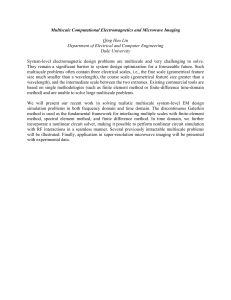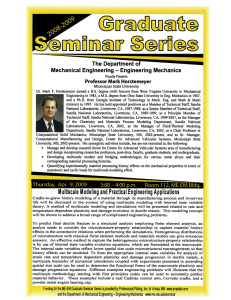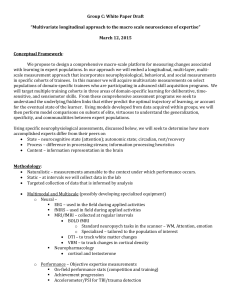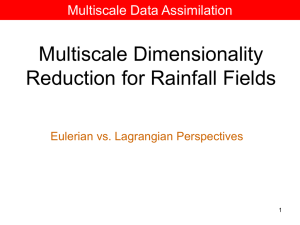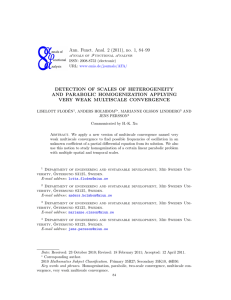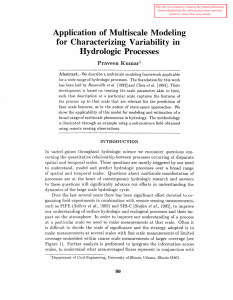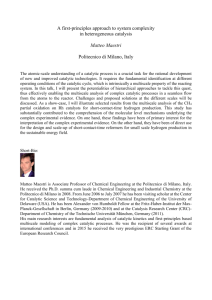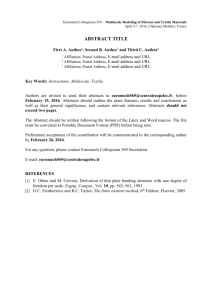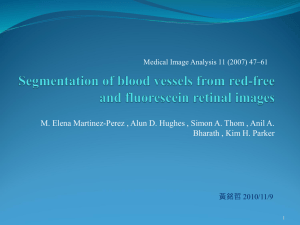Towards a multiscale framework for robust simulation of inelastic dynamic processes
advertisement
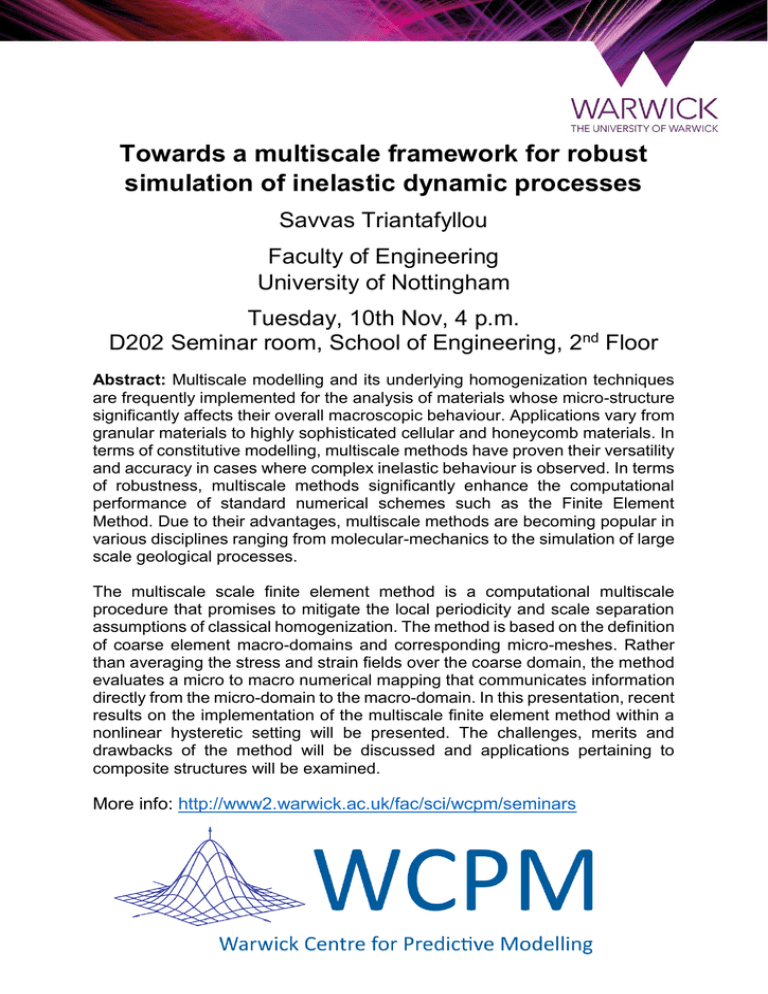
Towards a multiscale framework for robust simulation of inelastic dynamic processes Savvas Triantafyllou Faculty of Engineering University of Nottingham Tuesday, 10th Nov, 4 p.m. D202 Seminar room, School of Engineering, 2nd Floor Abstract: Multiscale modelling and its underlying homogenization techniques are frequently implemented for the analysis of materials whose micro-structure significantly affects their overall macroscopic behaviour. Applications vary from granular materials to highly sophisticated cellular and honeycomb materials. In terms of constitutive modelling, multiscale methods have proven their versatility and accuracy in cases where complex inelastic behaviour is observed. In terms of robustness, multiscale methods significantly enhance the computational performance of standard numerical schemes such as the Finite Element Method. Due to their advantages, multiscale methods are becoming popular in various disciplines ranging from molecular-mechanics to the simulation of large scale geological processes. The multiscale scale finite element method is a computational multiscale procedure that promises to mitigate the local periodicity and scale separation assumptions of classical homogenization. The method is based on the definition of coarse element macro-domains and corresponding micro-meshes. Rather than averaging the stress and strain fields over the coarse domain, the method evaluates a micro to macro numerical mapping that communicates information directly from the micro-domain to the macro-domain. In this presentation, recent results on the implementation of the multiscale finite element method within a nonlinear hysteretic setting will be presented. The challenges, merits and drawbacks of the method will be discussed and applications pertaining to composite structures will be examined. More info: http://www2.warwick.ac.uk/fac/sci/wcpm/seminars
